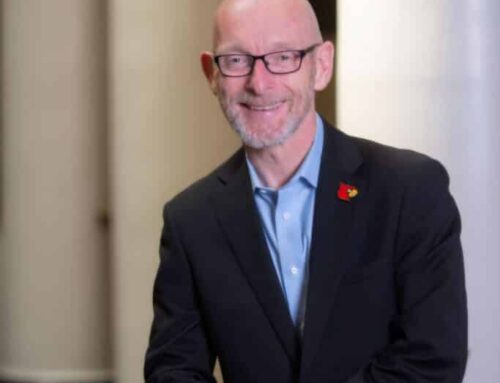By Shelby Brown–
Hilary Clinton and Donald Trump will go head to head on Nov. 8 for the Oval Office. Some voters are unsure of who they will vote for this November—or if they will vote at all.
“You find that negative approval of both candidates is high and that’s not a good thing,” political science professor, Dewey Clayton said. “It’s become the lesser of the two evils.”
Chances are, you know someone, conservative or liberal, who is planning to sit out this election. Maybe you are that person. Some conservatives are unsure that Trump will honor traditional Republican values. Democrats who initially supported Sanders have considered Clinton to be untrustworthy.
Third party candidates Jill Stein and Gary Johnson are also campaigning.
Voting Green or Libertarian may let Kentuckians vote with their consciences but there is the stigma that voting third party equates to throwing your vote away.
It gives the impression that your vote doesn’t count—a toxic belief held by a generation that already feels like their voices aren’t heard.
So why is it important to vote?
“Voting is truly important,” Clayton said.
“If you look at our constitution, much of it has dealt with expanding the right to vote. That’s the essence of a democratic society. When you talk about a government by the people and for the people— you are talking about people having the right to vote.”
If citizens feel like they have no voice, not voting ensures their silence. Throwing in the proverbial towel leaves you with no choices. In an election as crucial as this one, silent protest cannot be afforded.
“It’s your civic responsibility to vote. Especially women, we had to work for that right. Even though people may think it’s just one vote, it does make an impact because every single vote counts,” freshman Layne Wegenast said.
There are many reasons citizens choose not to vote: time constraints, balancing family and work responsibilities, transportation, feeling uninformed, their candidate didn’t get the nomination, or the most disheartening, they feel their vote does not count.
“I did support Bernie Sanders and I liked his ideas, but I also like Hillary Clinton. I know people who were such advocates for Sanders, but now they’re not voting at all because they’re so he didn’t win,” Wegenast said.
While not having the choice of your ideal candidate, not exercising your right to vote ensures one less vote for the candidate who still shares your beliefs.
Being uninformed or unsure about the issues in an election can be difficult as well.
This digital generation has access to endless information sources, some varying in degrees of accuracy. The search for credible information can be exhausting and overwhelming. But for a task as large as helping choose the next president, thorough research seems like a good idea.
Clayton is an advocate of younger generations actively participating in elections and politics.
“I would strongly encourage young people to realize that every vote counts and you can say ‘my vote doesn’t count’ and if you don’t vote it clearly won’t count. But if you do vote, you’d be surprised at the power you can have,” Clayton said.
Clayton brought up points about issues that were once completely off the table, like same-sex marriage and transgender bathroom use.
These issues of equality were brought to the attention of politicians by the people, young people specifically.
There’s a feeling of diffusion of responsibility when one chooses not to vote. We think that someone else will take care of it for us.
That is not the case.
Your vote represents you and what you believe in. That is monumentally important. When you vote, politicians are listening, and that affects change.
“That’s how people get elected: with that one vote,” Wegenast said.





